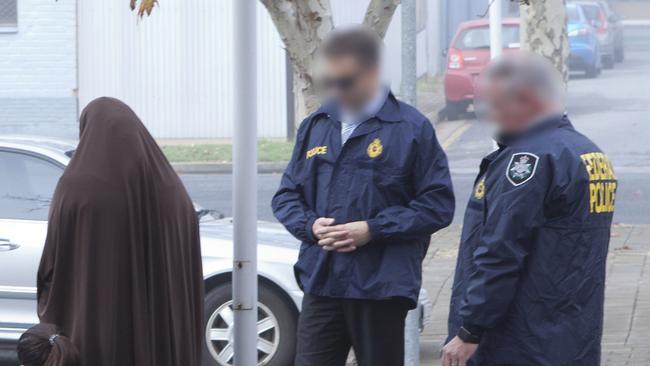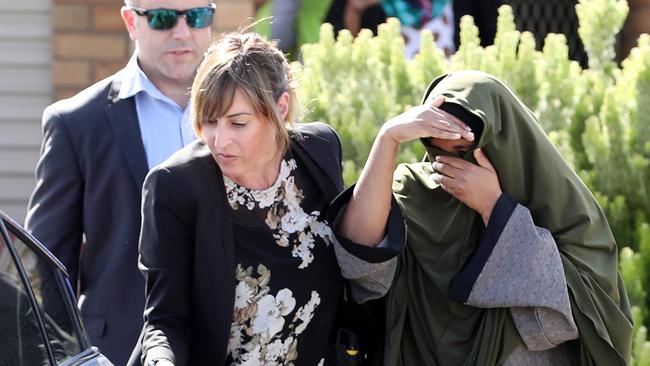Federal Court grants new control order on SA terror suspect
Convicted Islamic State member Zainab Abdirahman-Khalif can only use a police-issued mobile phone and computer, under another harsh control order issue by the Federal Court.

Police & Courts
Don't miss out on the headlines from Police & Courts. Followed categories will be added to My News.
The Adelaide student convicted of being a member of terrorist group Islamic State is the subject of another strict control order to restrict her activities in the community.
The Federal Court granted the order a fortnight ago, formalising an interim order put in place a day before Zainab Abdirahman-Khalif was released from prison last May.
The control order, granted by Justice Tony Besanko, is the second imposed on Abdirahman-Khalif, who was arrested by Federal Police in 2017 following a covert investigation.

The new control order – which expires on May 4 – lists 12 specific restrictions that essentially reflect all of the 19 listed in the first order granted by the Federal Court in 2020.
The conditions include a ban on leaving SA, a ban on using laptops, mobile phones and landline phones other than those issued to her by Federal Police, a ban on viewing any terrorist related material and activities connected with it and a continuing ban on visiting any prison and five named individuals.
The only significant difference is the relaxation of the curfew she is subject to. It has been changed from midnight to 6am to midnight to 4.30am.
Federal Police Acting Assistant Commissioner Sandra Booth said control orders were used to protect the community from terrorism.
“The AFP’s High Risk Terrorism Offenders teams around Australia work tirelessly with our partner agencies to ensure community safety,’’ she said. “This is a very good outcome for the community and demonstrates the commitment of the AFP and state and commonwealth partners to keeping Australians and Australia’s interests safe.”
In September 2018, the Supreme Court found Abdirahman-Khalif guilty but her lawyers appealed to the Full Court, which set aside her conviction and she was freed from prison in October 2019.

This decision was appealed against by the Commonwealth Director of Public Prosecutions to the High Court, which upheld the appeal in October 2020. Abdirahman-Khalif was returned to prison to complete her sentence and released last May.
During her trial the court heard Abdirahman-Khalif had taken steps to become a member of Islamic State, including attempting to travel on a one-way ticket to Turkey to engage with the terrorist group, accessing material promoting it and violent jihad, communicating with members of the group and pledging an allegiance to its then leader, Abu-Bakr Al Baghdadi. The court heard she also used the encrypted applications Telegram and WhatsApp to access and download a substantial amount of Islamic State propaganda and extremist material and communicate with women in Kenya, who later committed a terrorist attack in the name of Islamic State.




